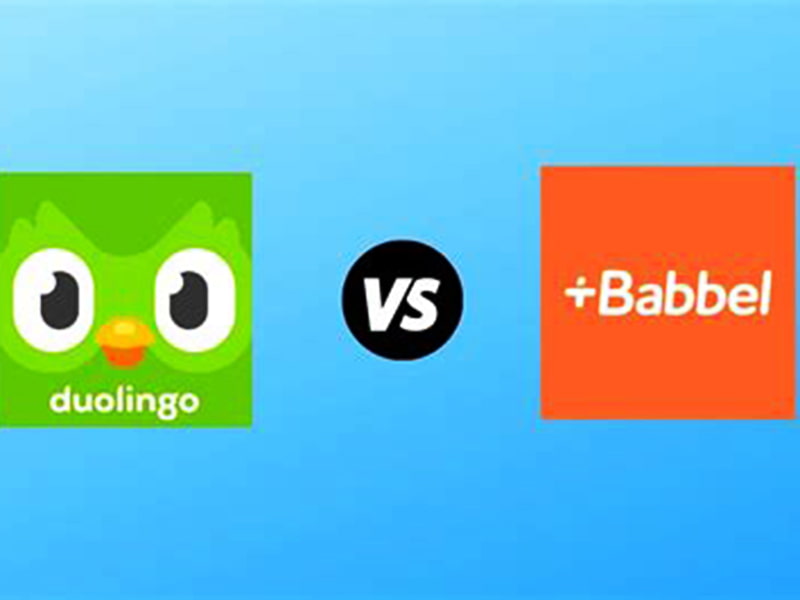Babbel vs Duolingo: Babbel and Duolingo are two of the most popular language-learning apps available today : advantages and disadvantages of each!

Babbel vs Duolingo
Everything you need to know about the topic!
LEARN A NEW LANGUAGE
Babbel and Duolingo are two of the most popular language-learning apps available today. Both apps offer a useful starting point for anyone looking to learn a new language. However, there are some differences between the two platforms that make them better suited for different types of learners.
Babbel vs. Duolingo comparison
Here is a comparison of Babbel vs. Duolingo, including the advantages and disadvantages of each:
Advantages of Babbel:
Structured lessons: Babbel offers structured lessons that aim to get learners to a conversational level as quickly as possible through the use of a variety of exercises and spaced repetition.
Conversational approach: Babbel's lessons are structured around conversations that are useful for everyday life, introducing grammar and vocabulary in contexts that users will encounter in real-life situations.
Speech-recognition technology: Babbel uses sophisticated speech-recognition technology to help users perfect their pronunciation.
Live online classes: Babbel offers live online classes (Babbel Live), original podcasts, games, videos, and more to help users learn a new language.
Affordable: Babbel is an affordable way to access engaging lessons in 14 different languages.
Flexibility: Users can choose how long daily sessions are and go at their own pace, making it ideal for flexibility.
Native speakers: Babbel uses native speakers for all spoken content and the pronunciation.
Disadvantages of Babbel:
Limited language options: Babbel offers only 14 languages, whereas other apps offer more languages.
Not as gamified: Babbel is not as gamified as Duolingo, which may make it less engaging for some users.
Advantages of Duolingo:
Free version: The basic version of Duolingo is free for everyone, making it accessible to everyone.
Gamified approach: Duolingo is more gamified than Babbel, which may make it more engaging for some users.
Casual learning: Duolingo is useful if you're looking to casually learn a language or want a little extra vocabulary for a trip you're planning.
Large user base: Duolingo has a large user base, which means there are many resources available for learners, such as forums and discussion groups.
Disadvantages of Duolingo:
Limited conversational skills: Duolingo does not offer advanced lessons to deal with real-life situations and significant cultural nuances.
Limited progress tracking: Duolingo does not offer detailed progress tracking, which may make it difficult for users to track their progress.
Limited language options: Duolingo offers fewer languages than Babbel.
BABBEL VS DUOLINGO summary
In conclusion, both Babbel and Duolingo are great options for anyone looking to learn a new language. Babbel is ideal for learners who want a structured approach to learning a language and prefer a conversational approach. Duolingo is ideal for casual learners who want a more gamified approach to learning a language. Ultimately, the choice between Babbel and Duolingo comes down to personal preference and learning style.